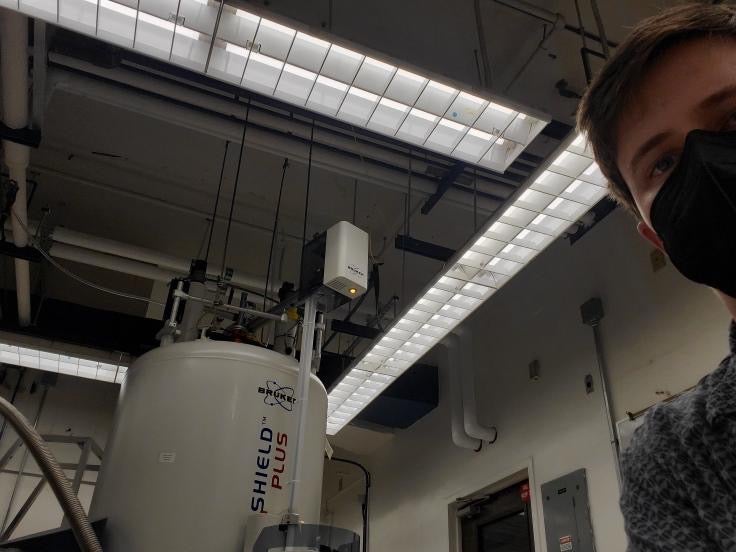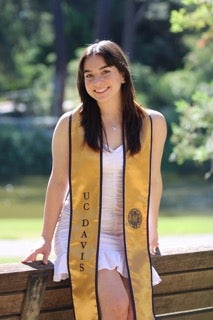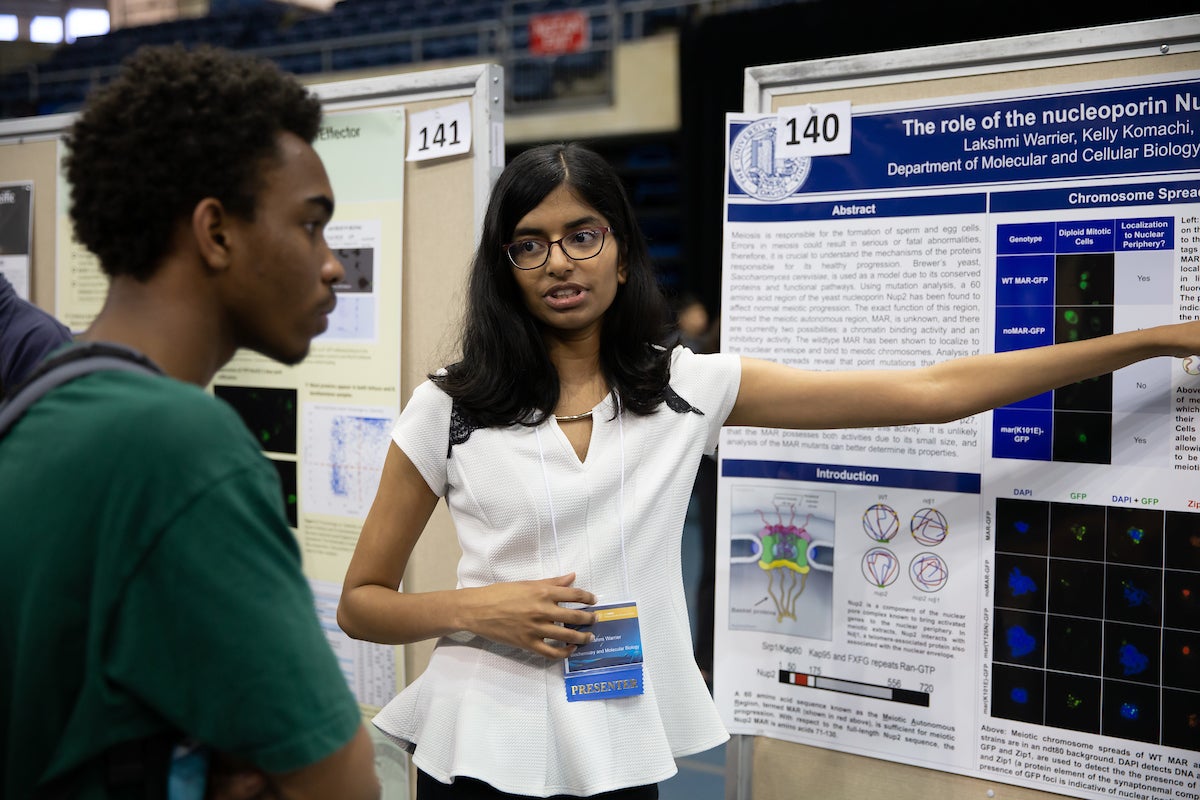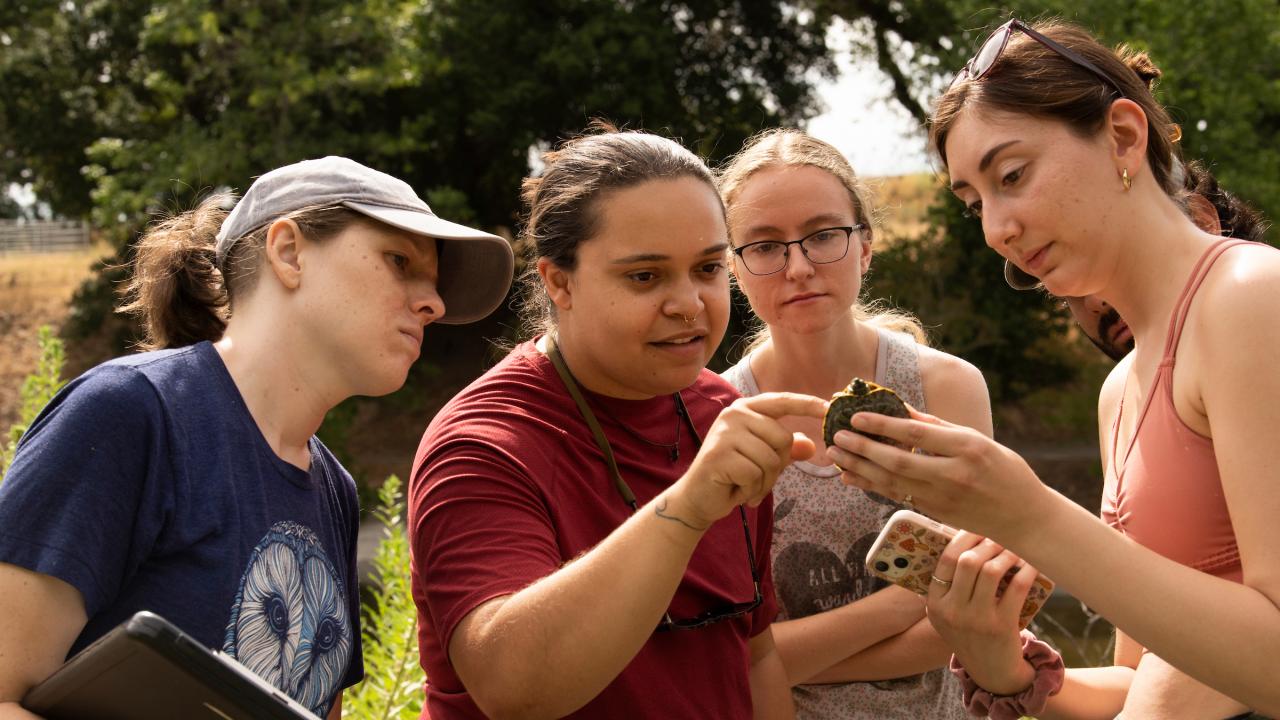During his sophomore year, Nathan Soland, a chemistry major and history minor, began writing emails to professors. Interested in research, he heard from older students that undergraduates could get involved. “So I started to reach out to professors,” Nathan said, “but I feel like I didn’t have any good coaching on what I should say or how to reach out.” This led to receiving no response from the two professors Nathan wrote to. “I was a little bit discouraged by that,” he admitted.
Nathan’s experience is shared by many students. One of the huge attractions to UC Davis, and other research-based universities, is that students actively participate in faculty-led and independent research. Undergraduates have opportunities to learn about and implement research methods, produce creative and new knowledge, and work to further knowledge in their field. But often, students don’t know how to discover or discuss these opportunities, making the process to find research opportunities confusing, intimidating and overwhelming.
However, just like research, the path to finding opportunities can be unique and surprising. The truth is that there’s no set way to begin a research position. There are many research options for undergraduates, you just have to know where to begin. Here are three ways to find research positions, as told by recent UC Davis graduates.
1. Contact professors

Despite his disappointment, Nathan did not give up. He reflected on his emails and found he had neglected to connect his interests to the professor’s research. So at the beginning of his third year, Nathan contacted two more professors and made clear his interest in material sustainability and its application. Both of the professors agreed to take him on as an undergraduate researcher, where he worked on projects that centered around the supply chain and material scarcity.
In the first lab, Nathan completed a chemistry thesis under Dr. Frank Osterloh. Nathan would run characterization tests on synthesized chemicals to discover more about water-splitting and understand charge-transfer dynamics. In contrast, Nathan’s second lab was a broad look at mineral economics. He completed a literature summary, in which the group constructed a periodic table of critical elements. The work was compiled for the Critical Materials Institute. “In [my thesis] lab, I did more of the hands-on science and then the other lab I got more of the soft, literature search skills that are extremely useful today for my research,” Nathan said.
In both labs, Nathan learned the importance of communication. By the end of his undergraduate experience, he understood how to succinctly communicate his findings both within the lab and outside. “I entered every conference that I could when I was at UC Davis,” Nathan said, “I feel like that was extremely useful in learning how to present my research and write up quick summaries.”

Beyond lab work, Nathan’s research experience gave him a chance to reflect on what would be next. “The best things about being an undergraduate researcher is getting a little bit of perspective into how graduate school could look and talking to the students in the lab,” Nathan reflected.
After graduating in Spring 2020, Nathan secured a post-college internship at the National Renewable Energy Lab in Colorado. He is now in his second year at UC Berkeley pursuing his Ph.D. in physical chemistry and researching creative ways to divest from a petroleum-based carbon economy. “I picked this lab based on my experience in undergrad, deciding I wanted to do something that could have an impact, not just for fundamental science’s sake,” Nathan said.
Though both labs shaped Nathan’s academic journey, he did admit to feeling overwhelmed at times. “So I would recommend sticking to one lab or another,” he advised.
Try to find one research opportunity that really interests you and then invest your time in exploring that research and connecting with the professor. This will give you a better chance at a response. “It’s good to try to reach out to people who you have some meaningful connection to, whether it's you actually took their class and enjoyed it or you’ve looked deeply into their research and you think that it relates to something that you’re really interested in,” Nathan concluded.
2. Explore academic departments that interest you

Undergraduates can also find research by participating in departments that interest them. UC Davis is a huge campus with so many academic and professional opportunities, opportunities undergraduates may not hear about until they go looking. Leah Kalish knows this better than most. As a sociology — organizational studies major with minors in education and professional writing, her diverse interests led her to explore many different department projects.
During her sophomore year, Leah participated in a survey for an education course that hoped to learn more about her experience as an undergraduate. Intrigued by the opportunity, she was willing to participate in an expanded, in-person interview through the UC Davis Center for Educational Effectiveness — a building she didn’t know existed on campus. “It's mostly a resource for faculty to improve their teaching and their transparency with students,” Leah summarized. The researchers investigated how students understood their learning outcomes. After participating in the survey, Leah met with the Coordinator for Academic Assessment, Kara Moloney, and expressed her personal interest in their work.

Unfortunately, a week after the survey, the 2020 COVID-19 pandemic began. However, Leah was patient and persistent, and after reconnecting with Kara, she secured a position as a Student Assessment Researcher to explore higher education research. Alongside a Ph.D. candidate and several other undergraduates, Leah would reread and listen to the interviews conducted prior to the COVID-19 pandemic — the very interviews she’d participated in. “We did something called qualitative coding where we were looking for similarities in the topics that students brought up,” Leah said. These codes translated to themes the team used to write and publish a research paper.
Leah emphasized the importance of networking to secure her research position. She encourages students to be open about their interests and put themselves out there. Her receptiveness not only gained her experience, but a letter of recommendation. “I…had a lot of direct experience with impressive people who could then advocate for me later when I was working on [job and course] applications,” Leah said.
After her research position, Leah secured an internship with a nonprofit that advocated for after-school programs, a role that revealed to her the importance of teachers. So upon graduating in December 2021, Leah decided to pursue a teaching credential and is now an incoming teaching candidate at San Diego State University. “Research helped me navigate where I ultimately wanted to go,” Leah reflected.
3. Apply to university programs or scholarships

Finally, undergraduates can apply to university research programs. During my final year at UC Davis, I felt like my undergraduate experience was missing a piece. It took a newsletter from my major advisor to realize what was absent. I had never held a research position while at a research-based university. Though research is not a required experience, it felt like the perfect next step in my academic career: applying the knowledge you’ve gained to not only learn, but discover!
In our monthly newsletter, my major advisor discussed the Ted Bradshaw Engaged Student Scholars Program. Housed in the Center for Regional Change, I went through two rounds of placement interviews, after which I was assigned to work on a research team with Dr. Jonathan London. Alongside Ph.D. Candidate Peter Nguyen and four undergraduates, I hoped to understand whether Assembly Bill (AB) 617 and its resulting program, the Community Air Protection Program, were effective. The program’s “focus is to reduce exposure in communities most impacted by air pollution” through community-based development and implementation of “new strategies to measure air pollution and reduce health impacts.” Through my experience, I learned about participant observation and qualitative field research, while developing a passion for environmental justice.
The program also held monthly workshops for the eight scholars, where we learned different ways to lead community-based research and how to access public tools. In the research, I found a system of student support, learned from graduate students, and gained mentorship from professors. The program gave me structure: learning to work on a deadline, present high-level summaries, and train new undergraduate researchers.
To finish the program I had the opportunity to present my research and hear about the work of other Bradshaw scholars. We had all helped to grow our community’s understanding of effective environmental justice. Because a university research program offers specialized topics, it’s important to apply to a program that caters to your interests!
Continued learning

Undergraduate research is an opportunity to strengthen your academic skill set and field knowledge. But it’s also a time to learn more about yourself. Research gives you a chance to explore topics that interest you – and ones that don’t. “It’s also okay to find out that you start some research and that you’re not actually that interested in it. That happens a lot and you can’t really be expected to know what you’re going to like for the next four, five years right away,” Nathan said.
If your first position is not what you expected, try again! To find new opportunities, don’t be afraid to seek a different path:
- Meet with your advisors — they often know about on- and off-campus organizations that are looking for participants or researchers.
- Visit your university’s Undergraduate Research Center or Internship and Career Center
- Explore your university’s Jobs and Internships Facebook page – users regularly post research-based opportunities.
- Talk to your classmates, friends and TAs about what opportunities they’ve pursued.
- Apply to an undergraduate seminar, where you can work with an assigned mentor to pursue your own research and write a thesis.
- Or consider joining your university’s honors program, where you can write an undergraduate thesis. At UC Davis, incoming students are invited to apply, while current students are able to apply at select times during the school year — attend a zoom meeting for further information!
Though we found our opportunities at UC Davis, our experiences can be applied at many universities. On any campus, students often stumble into positions by discussing their interests, so be willing to ask questions in class, talk to your professors and peers, and put yourself out there. “Yes, we are a research-based university, but you do have to seek out those opportunities,” Leah concluded, “it never hurts to introduce yourself and share your interests.”
Katie Dineen recently graduated from UC Davis with a major in international relations and minors in French, human rights, and professional writing. At UC Davis, she researched forced migration, environmental justice and community-led advocacy. The Majors Blog has been a place to explore her passion for writing.
